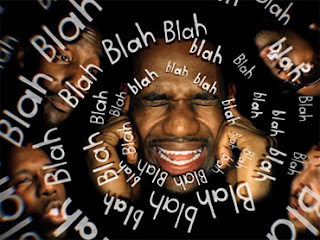What Should We Do

Interesting commentary from Ben Casnocha regarding the latest Nike/LeBron ad: "What Should I Do?" When the beloved hometown boy becomes the narcissistic villain, the consummate teammate and favorite son turned backstabber and heartbreaker, why not appeal to something all Americans respect: individualism. Can we fault young LeBron - still only 25 years old - for wanting to 1) get out of a bad job/company/city 2) be with his friends 3) win championships 4) live/work/play in South Beach? Most of all, can we fault him for choosing his own path?
I'm not here to judge the man from the standpoint of basketball, career, or morality. I do find it fascinating that the Nike commercial includes a reference to Charles Barkley's line, "I am not a role model," delivered by LeBron with an unmistakable smirk. For as with Barkley's attitude, so does LeBron presume we will extend grace to him under the assumption that we can't possibly expect him to be someone he hasn't himself chosen to be.
And yet isn't that what life truly is, if you take community and relationships seriously? Not that we are someone else's automaton or are stuck living under someone else's expectations of us. But, that we take seriously that with a certain place within a certain ecosystem, we are necessarily bound by a certain set of roles and responsibilities. "To him who has been given much, much is expected," and this goes not only for material wealth but also status, power, influence, trust. and, yes, the adoration of millions of fans.
Our actions and attitudes affect others, for good and for bad, and so as good and American a trait as rugged individualism is, it is not the end all and be all of how we ought to make, announce, and implement our life decisions. Think of the husband who chases the dream job without fully accounting for the effect his relocation will have on his wife and children, or the community activist who thinks what he does on his own time is his own business but it isn't (because young eyes watch and are influenced by the way he carries himself), or the business leader who glories in listening no one but himself even as he drives his venture into the ground.
But these are negative examples, for they suggest that subsuming the "I" for the "we" is always stifling and compromising and second-best. Consider positive examples, instead: that if others are affected by our decisions, that means we hold more power than we thought to do good for others. And, if our sense of personal gain is aligned with the extent to which others gain, it can be incredibly empowering (rather than unfortunately stifling) to say no to rugged individualism and yes to a decision-making framework that considers how we might achieve the greatest good for ourselves an others.
I neither excuse nor vilify young LeBron for doing what he did or for doing it the way he did it. But for me, his saga continues to enlighten and inform me as to how this generation believes and acts, and causes me to pause to consider if there isn't a word that is worth saying to this generation about how it should believe and act.
Comments